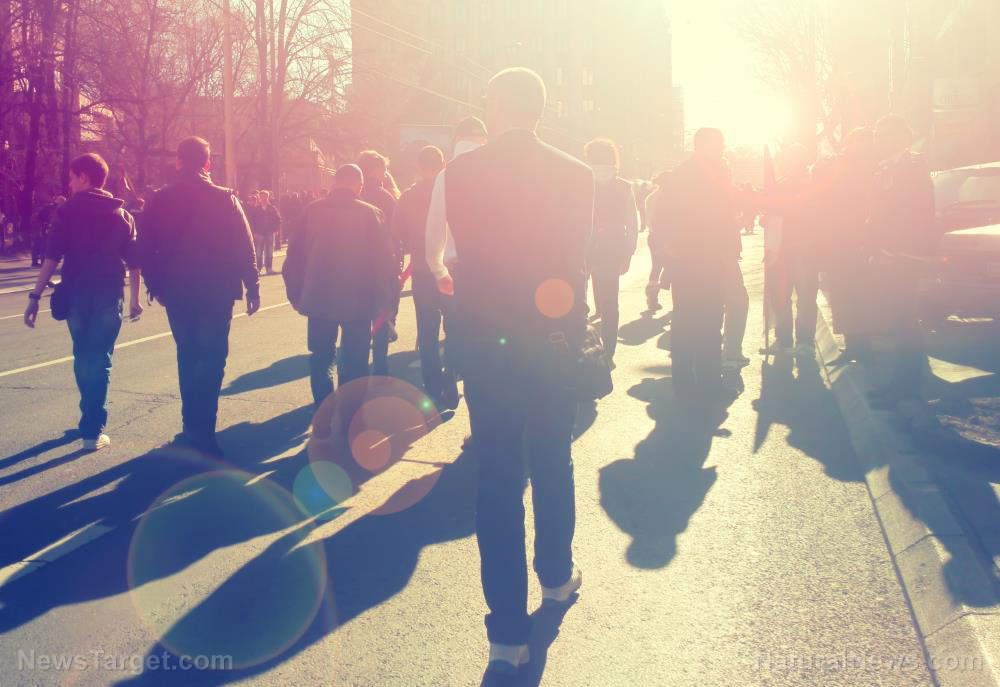
Thousands of protesters in the Netherlands marched on the streets of Amsterdam on Sunday, Jan. 16, to oppose the Dutch government's Wuhan coronavirus (COVID-19) restrictions.
Anti-lockdown demonstrators packed the streets of the capital carrying banners and yellow umbrellas. They played music, chanted slogans and marched along major thoroughfares. Dutch farmers also joined the Jan. 16 protests, driving to Amsterdam and parking their tractors along the Museumplein public square.
According to Al Jazeera correspondent Step Vassen, the protests were peaceful despite the mood being "quite heated." She said: "There's a wide range of people against government measures and a general distrust of politics. A lot of people are now not obeying rules and are violating many of the rules that are still in place."
Prior to the rally, Dutch authorities were granted stop and search powers at several locations across the city. Riot police vans patrolled Amsterdam neighborhoods where the demonstrators marched. Law enforcement separated a small group of anti-fascist protesters and transported them to a different location to avoid any scuffles.
The Jan. 16 demonstration came amid the Netherlands' month-long lockdown, one of the toughest in Europe. Dutch Prime Minister Mark Rutte initially ordered the lockdown back in mid-December 2021 following the spread of the B16172 delta variant.
He announced on Jan. 14 that non-essential stores, hairdressers and gyms would be allowed to open – albeit under strict conditions. Bars, restaurants and cultural venues have been instructed to remain closed until at least Jan. 25 due to uncertainty about how the B11529 omicron variant will impact Dutch hospitals.
According to data published by the Dutch National Institute for Public Health and the Environment, the country reported a record high of more than 36,000 COVID-19 infections on Jan. 16. Figures from Johns Hopkins University showed the Netherlands having more than 3.6 million COVID-19 cases and more than 21,000 COVID-19 deaths.
KMar officers, police dogs disperse Amsterdam protesters
Two weeks earlier, officers from the Royal Marechaussee (KMar) military police dispersed protesters disagreeing with COVID-19 measures at the Museumplein. They also used trained police dogs to attack demonstrators congregating at the public square last Jan. 2.
Amsterdam Mayor Femke Halsema reportedly ordered the KMar officers to disperse the protesters. She also issued an emergency order prohibiting assemblies at the Museumplein. But it did not dissuade protesters from airing out their grievances and expressing their disagreement toward Rutte's tyrannical mandates.
Footage circulating on social media showed law enforcement severely beating demonstrators and even releasing trained police dogs to attack them. (Related: Anti-vaccine protesters in Amsterdam brutalized by law enforcement, police dogs.)
Several protesters who joined the Jan. 2 assembly confirmed that "great numbers" of KMar officers were present at the Museumplein. They added that potential participants were being searched extensively in order to intimidate them into backing out of the protest.
Dutch lawmaker Pepijn van Houwelingen of the Forum for Democracy (FvD) Party posted pictures of a busload of protesters being pulled over by KMar officers. He added that an officer yelled at the bus to turn around, warning that they will be stopped if they go into Amsterdam.
"This is what a dictatorship looks like where fundamental rights are worth nothing. If you challenge the totalitarian regime and start demonstrating for freedom, suddenly everyone is arrested," the FvD legislator said of the violent Jan. 2 dispersal. (Related: Thousands storm streets of New York City to protest covid medical fascism.)
Political reporter Paso Dagori said: "The fact that is now normal to carry out preventive searches on demonstrators says something about the decline of this country." Lawyer Bart Maes, meanwhile, announced he would file a report based on the instances of police violence seen on social media footage. He zeroed in on a KMar officer who hit a protester on the head during the Jan. 2 dispersal.
Watch the video below of the Jan. 2 protests in Amsterdam.
This video is from the Dutchyboy channel on Brighteon.com.
Resist.news has more about protests against COVID-19 mandates in Amsterdam and other parts of the world.
Sources include:
Please contact us for more information.















